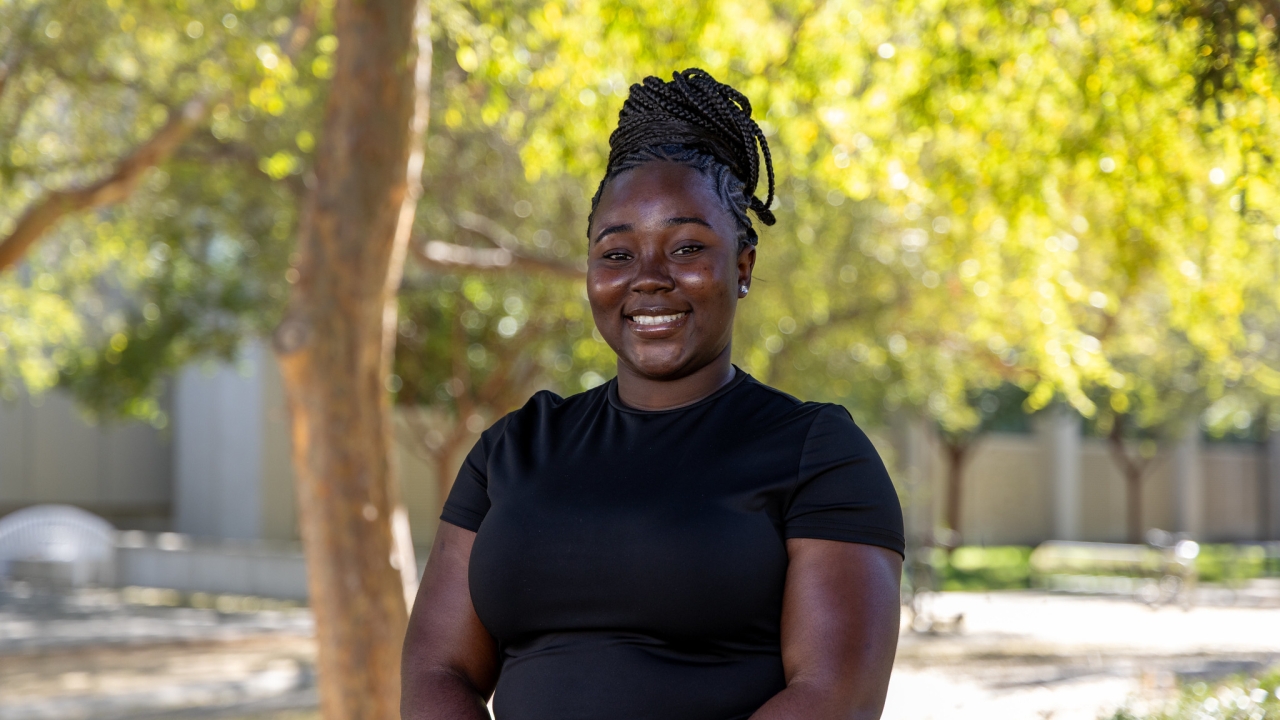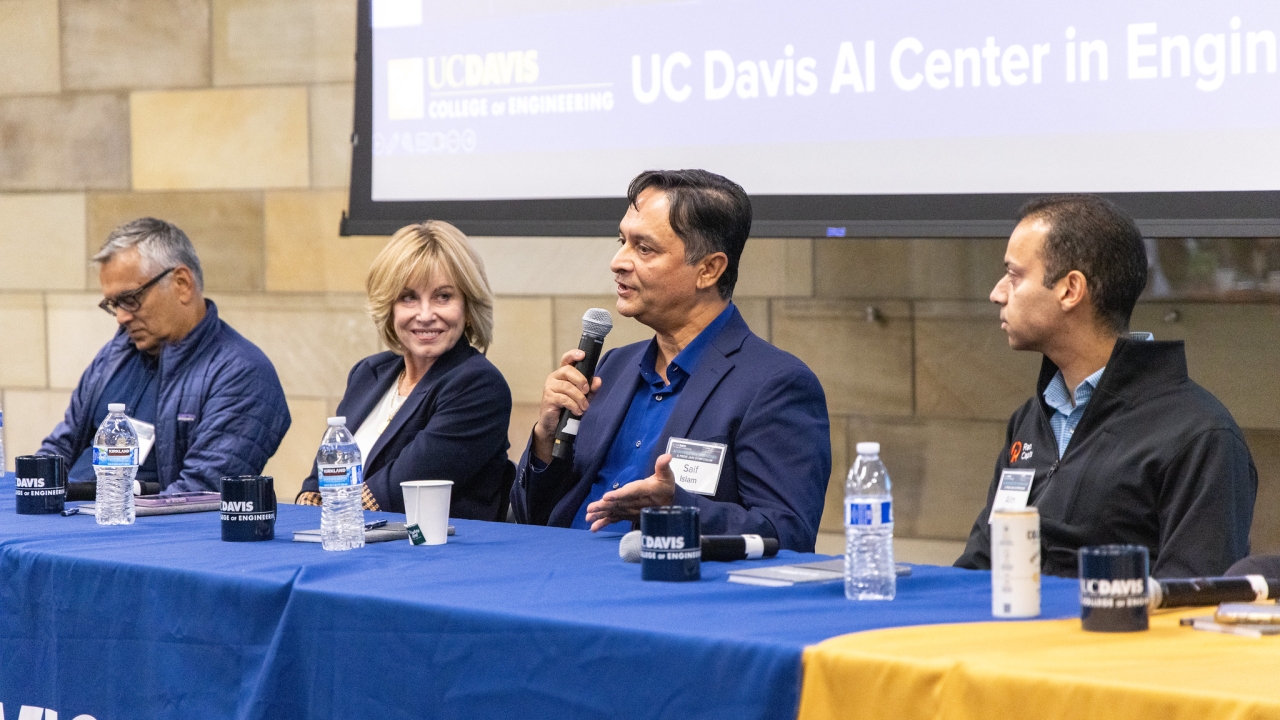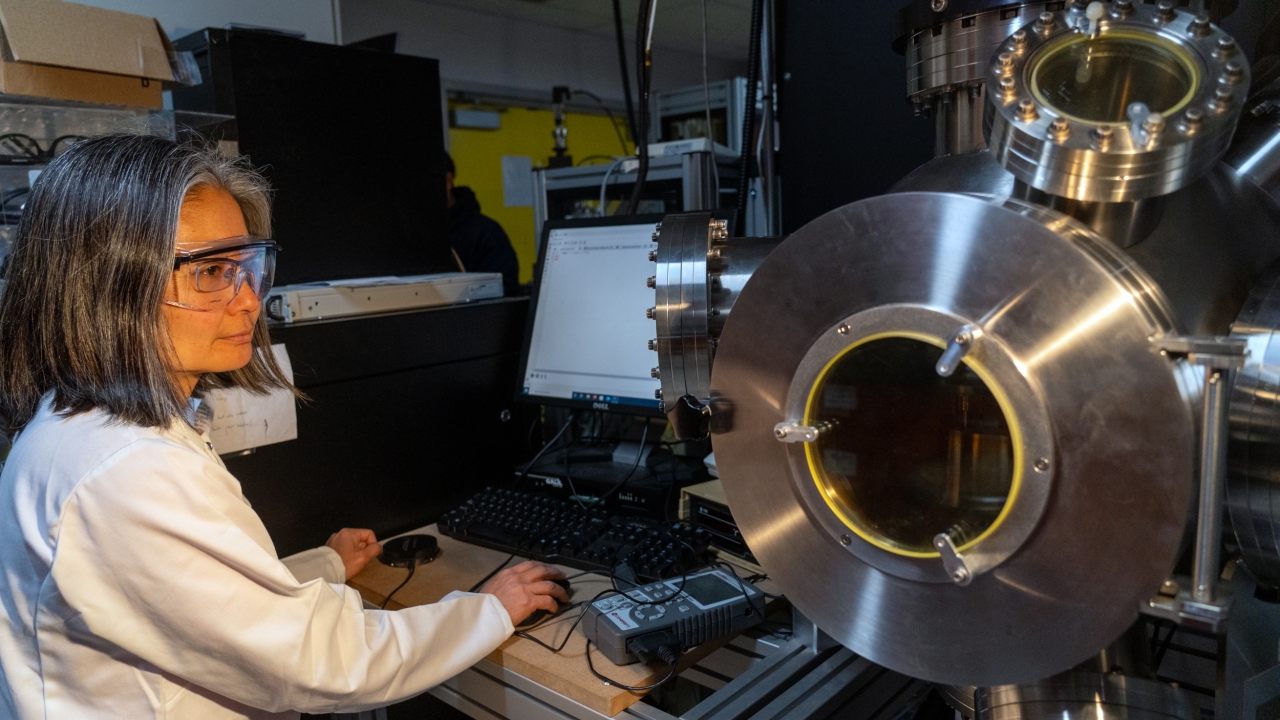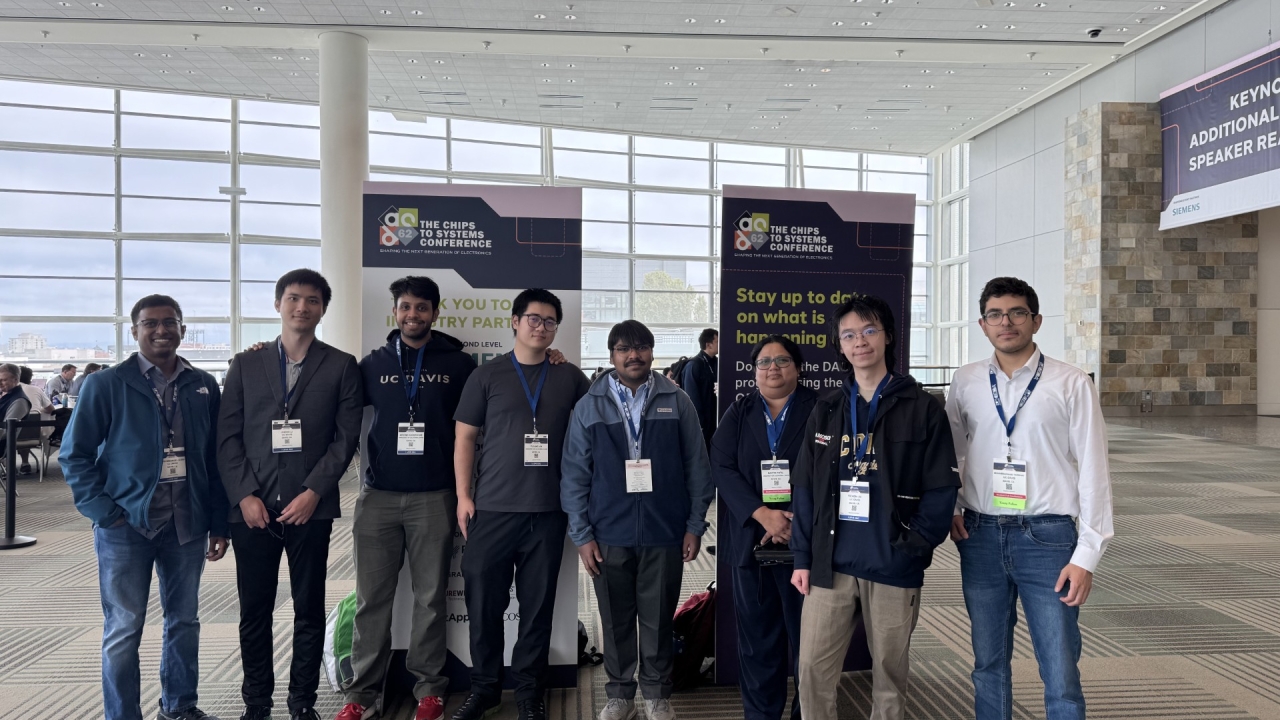
UC Davis Students Secure Top Honors with AI-Driven Hardware Hacks
Two teams of electrical and computer engineering students from the University of California, Davis, have received top honors for their work at hackathons during the 2025 Design Automation Conference, or DAC.
DAC is a leading global conference for chips to systems research, from artificial intelligence and electronic design automation to security and embedded systems and software.
The teams of engineering students, all from Professor Houman Homayoun‘s Accelerated, Secure, and Energy-Efficient Computing Lab, participated in two separate hackathon events. One team earned first place at the ICLAD Generative AI Hackathon event, and the other earned third place in the Hack@DAC event.
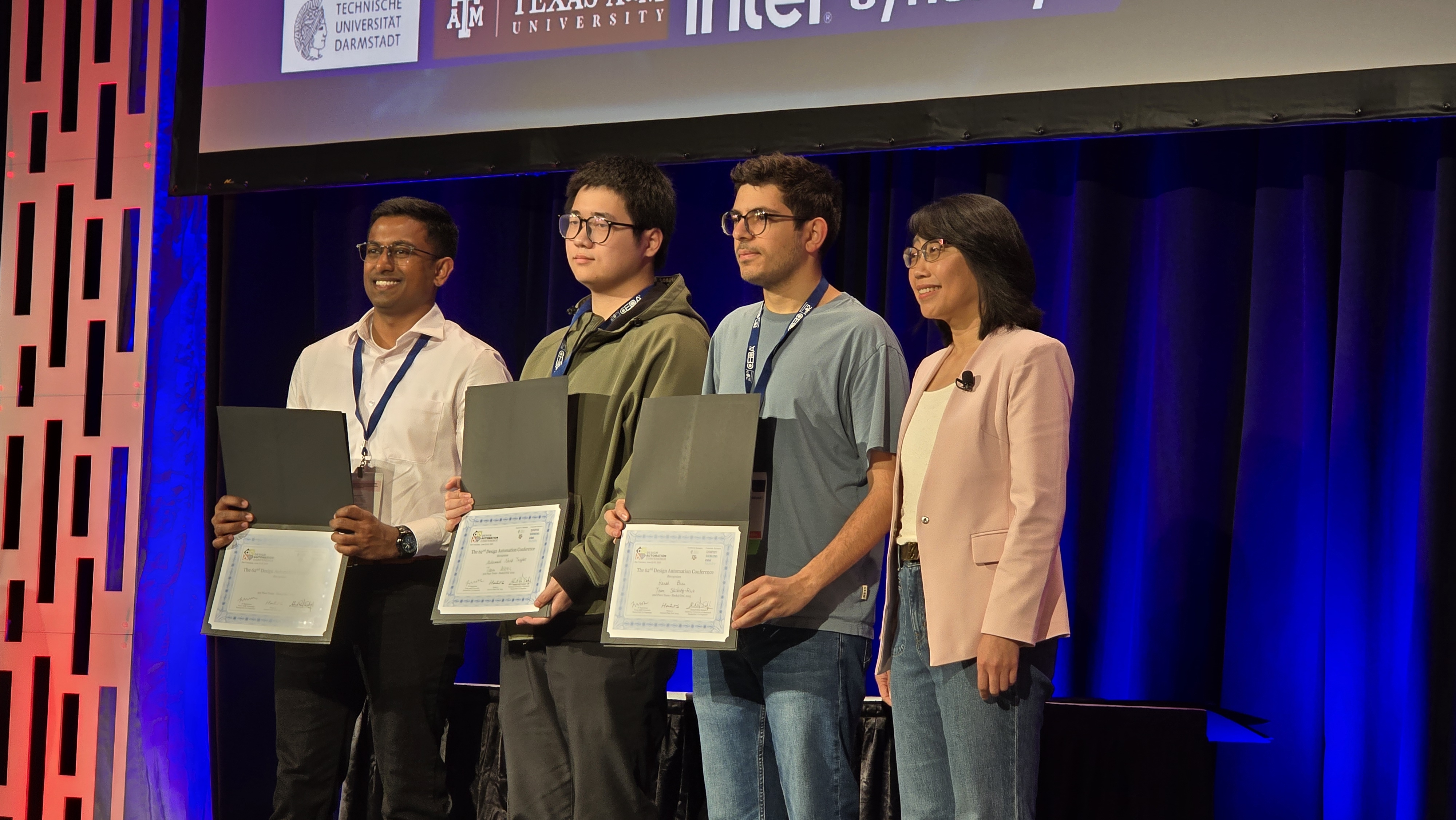
“Winning third place and first place, among top U.S. and international teams, was a proud moment,” said Kevin Immanuel Gubbi, the lead for both projects and an electrical and computer engineering Ph.D. student. “These events gave us valuable exposure to state-of-the-art research at DAC, particularly in hardware security and AI-driven silicon design.”
Hack@DAC is the world’s largest cybersecurity hardware capture the flag competition, tasking participants to explore and identify security vulnerabilities on system-on-a-chip designs in just two days’ time.
Gubbi’s team developed a semi-automated framework with artificial intelligence to expedite the identification and confirmation of security threats. Their work demonstrated how AI can be thoughtfully implemented to ensure the trustworthiness and security of hardware.
The other UC Davis team under Gubbi’s leadership tackled the ICLAD Generative AI Hackathon, sponsored by Google, Nvidia and Qualcomm. The challenge asks participants to use either small or large language models to solve problems related to automating chip design.
For their first-place project in the small language model track of the competition, the team engineered optimized strategies for small language models to function under strict latency constraints. Specifically, they worked to ensure that lightweight models can handle register transfer level verifications, which are crucial for ensuring a digital circuit works as intended.
“The two International awards at the 2025 Design Automation Conference are a direct reflection of Gubbi’s leadership and the technical innovation of the teams he guided,” said Homayoun. “These projects stood out for their real-world relevance, interdisciplinary strength and execution under tight constraints.”


